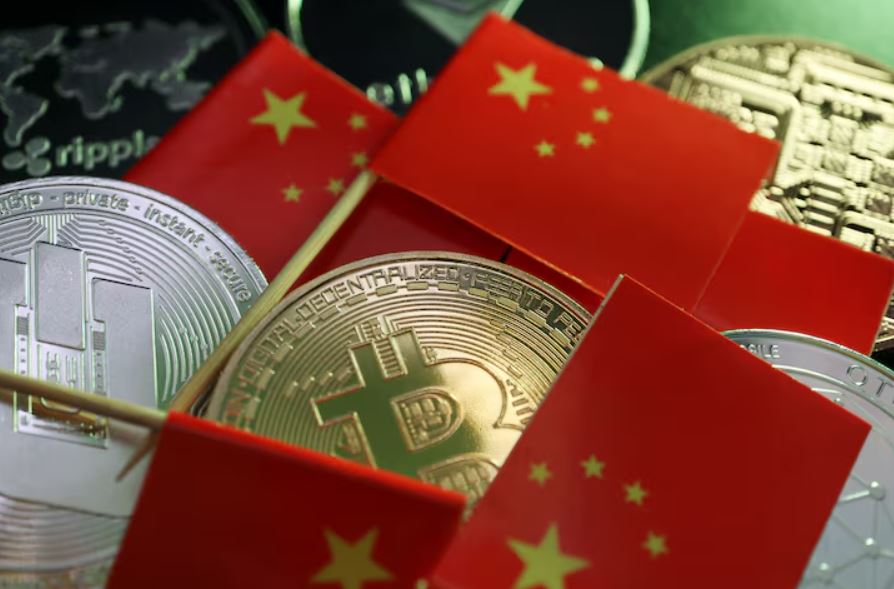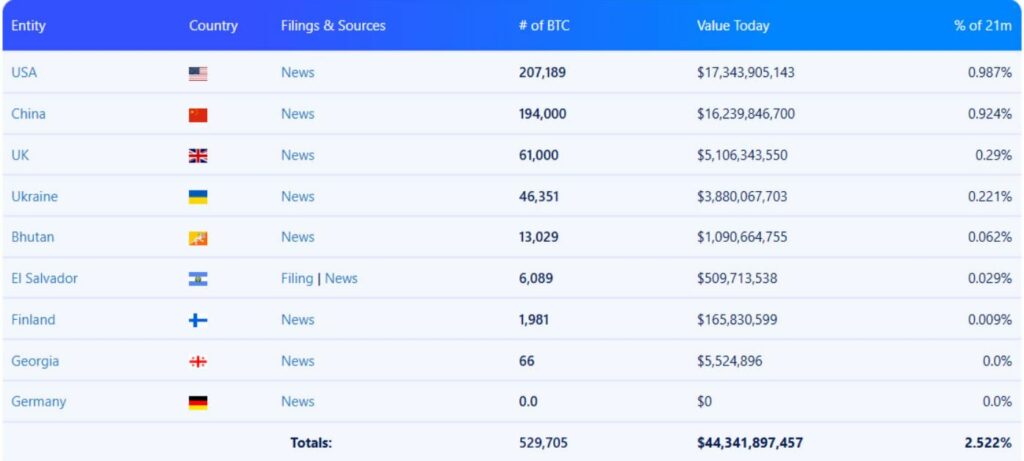
As China’s economy slows down, local governments are turning to an unusual solution — selling seized cryptocurrency. This move comes despite the country’s strict ban on crypto trading. According to a Reuters report published on April 16, 2025, the process of China selling seized crypto is happening in a legal gray area, raising questions about transparency and future policy.
Seized Crypto Becomes a New Source of Income
Local authorities across China are reportedly working with private companies to sell confiscated crypto assets. These assets are being offloaded on offshore markets in exchange for cash. The goal is simple: to top up public funds at a time when the country is under financial pressure.
China selling seized crypto has now become a significant revenue source. By the end of 2023, local governments were said to be holding around 15,000 Bitcoin (BTC), valued at approximately $1.4 billion. These crypto sales have now become a significant revenue source for many local administrations.
However, this practice is not without controversy.

Legal Gray Areas and Risk of Corruption
China banned crypto trading and exchanges in 2021. Despite this, the sale of seized digital assets continues, largely due to the lack of clear national rules on how to handle them. The result? Different provinces and cities use inconsistent methods, which some legal experts warn could lead to corruption and abuse of power.
Professor Chen Shi from Zhongnan University of Economics and Law told Reuters that the current practice is a “makeshift solution.” He emphasized that it is not fully in line with China’s crypto ban and may require new regulation or oversight.
This lack of regulation is central to the wider debate around China selling seized crypto in a country where crypto remains officially outlawed.
China’s Massive Crypto Holdings
Despite the ban, China is still a major crypto holder. According to Bitbo, a crypto data platform, the Chinese government controls about 194,000 BTC, which is worth around $16 billion. That makes China the second-largest Bitcoin holder among countries, right behind the United States.

This raises a key question: if China officially opposes crypto, why is China selling seized crypto in such large amounts?
The answer may lie in the growing need for liquid funds and a desire to adapt to changing global markets.
Crime, Crypto, and the Courts
One reason for the large volume of seized crypto is the rise in crypto-related crime across China. These crimes include online fraud, money laundering, and illegal gambling. The situation is serious. In 2024 alone, the government filed lawsuits against over 3,000 individuals involved in money laundering through crypto.
With digital currencies playing a bigger role in both crime and the economy, the government is facing pressure to come up with long-term strategies for how to handle them.
A Central Solution?
Some legal and financial experts believe the central government should step in. Guo Zhihao, a lawyer based in Shenzhen, suggested that the People’s Bank of China (PBoC) is in the best position to manage seized crypto. He said the bank could sell the assets abroad or even create a crypto reserve.
Others agree with this approach. Ru Haiyang, co-CEO of the Hong Kong-based crypto exchange HashKey, said China might want to keep crypto as a strategic reserve, much like how former U.S. President Donald Trump has pushed for the U.S. to support the crypto industry.
This idea is gaining attention, especially as tensions between the U.S. and China continue to rise. Trump’s administration has shown a strong interest in regulating stablecoins and supporting crypto innovation. Some believe that China selling seized crypto could be part of a broader economic strategy to counter global competition.
Hong Kong’s Role in the Strategy
One proposed solution is to create a sovereign crypto fund in Hong Kong. Unlike mainland China, crypto trading is legal in Hong Kong. This makes it an ideal location for managing digital assets in a legal and transparent way.
Such a fund could allow China to maintain control over its seized assets while avoiding legal conflicts with its national ban. It could also serve as a buffer against currency devaluation or trade-related shocks.
Crypto as a Hedge in Uncertain Times
With rising fears of currency devaluation and continued U.S.-China trade disputes, some experts suggest that people — and governments — may turn to crypto as a safe haven. If the Chinese yuan weakens due to tariff responses or other external pressures, crypto could become a popular alternative for both individual investors and government planners.
While China officially bans crypto trading, the country’s actions, including holding and selling large amounts of Bitcoin, hint at a more complex attitude toward digital assets. The ongoing trend of China selling seized crypto is a key example of this dual approach.
Looking Ahead: Regulation or Reversal?
For now, China’s crypto policy remains unclear and inconsistent. Local governments are selling Bitcoin. Courts are punishing crypto crimes. And financial experts are suggesting national strategies. All of this is happening in a country where crypto is supposed to be banned.
As the global crypto market continues to grow and as other countries embrace blockchain technology, China may face increasing pressure to rethink its approach.
Will the country continue to quietly sell seized crypto while maintaining a public ban? Or will it eventually adopt more open policies to compete on the world stage?
Only time will tell. But one thing is clear, despite its official stance, China selling seized crypto is already shaping financial and legal conversations at home and abroad.























